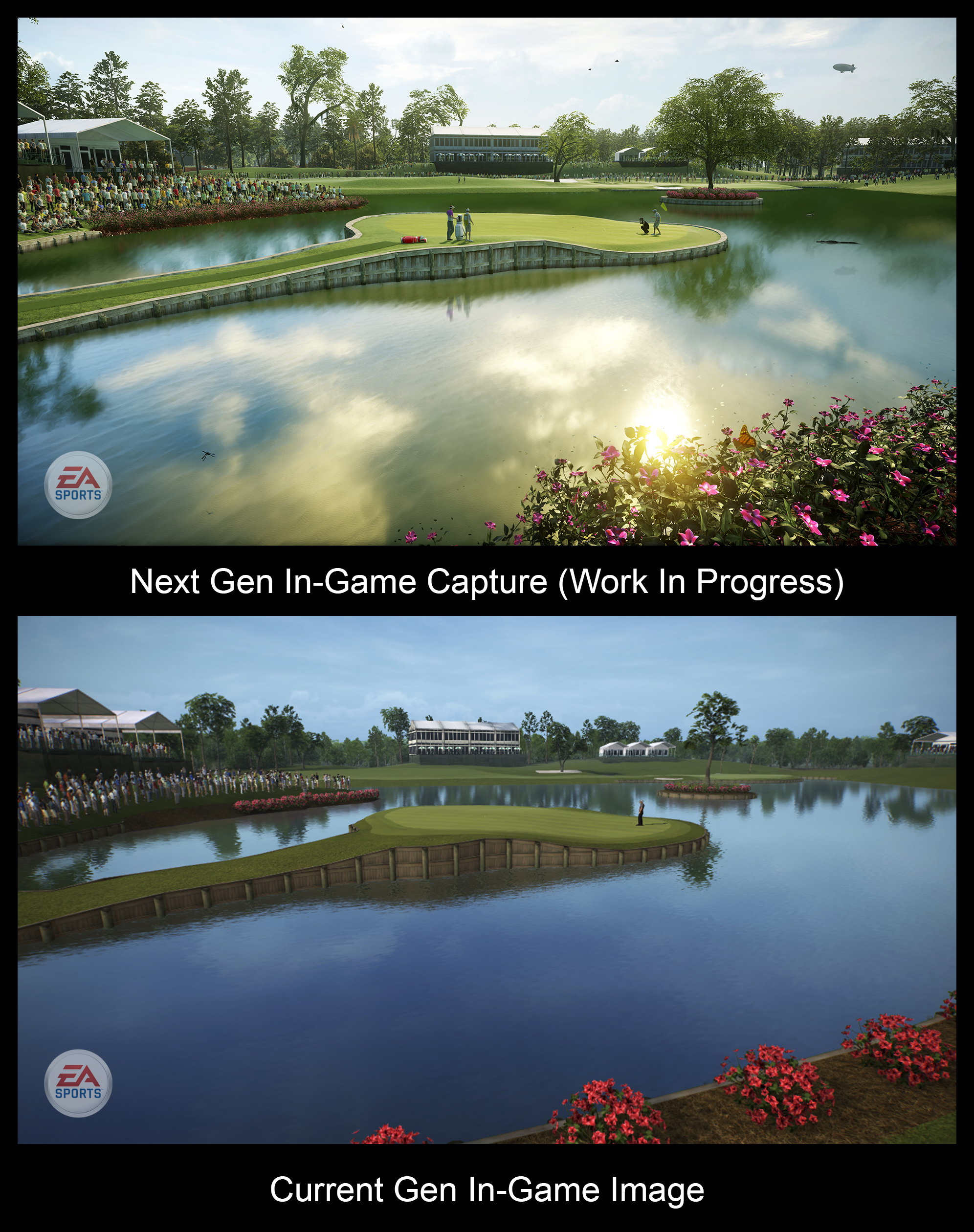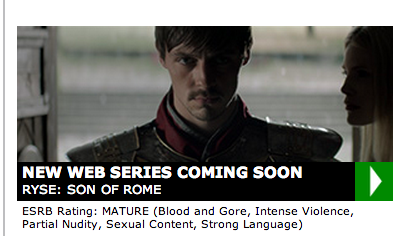Dead Rising 3 is all about the fun of causing chaos with a horde of hapless zombies and this commercial is all about that. Grab a custom weapon and get ready to get in on the action.
{video link no longer active}
Dead Rising 3 is all about the fun of causing chaos with a horde of hapless zombies and this commercial is all about that. Grab a custom weapon and get ready to get in on the action.
{video link no longer active}
While Japan’s mobile gaming market has been having a rough year or two, South Korea’s mobile gaming market grew at a healthy 33.8 percent in 2011, according to a report from the Korea Creative Content Agency. Other numbers reported include:
Online gaming appears to play a huge part with these numbers, particularly releases from Activision Blizzard, such as Diablo III and Starcraft II. Lately, though, Riot Games’ League of Legends has captured the top spot among Korean gamers.
By comparison, Japan’s total gaming market was only $4.6 billion, and grew only 1.2 percent last year, while South Korea’s market grew 10.8 percent.
Source: TechInAsia
With the Xbox One due in stores in less than a month’s time, Microsott has highlighted just what the system can do with a new video, one that shows off just what the interface can do.
Using voice commands that are read through the system’s Kinect device, users can switch through a number of options instantly. In the video, we see an Xbox One player switch between the movie Pacific Rim, the upcoming first-person shooter Titanfall, the TV show Sleepy Hollow and a Skype call within a short time frame.
The video also shows off how to use the record and share features with the device, for saving particular game clips and letting others see what you can do. Up to five minutes of gameplay can be recorded, and editing is available using voice commands as well.The Xbox One arrives in stores on November 22nd.
Source: Polygon
For years, EA Sports has teamed with golfing superstar Tiger Woods for a number of video games, starting back in 1998 with Tiger Woods PGA Tour 99 and leading up to this year’s Tiger Woods PGA Tour 14. However, from hereon in, it’ll be flying solo.
The company announced today that they have dropped Tiger Woods as the face of its golf game series. “EA Sports and Tiger Woods have also made a mutual decision to end our partnership, which includes Tiger’s named PGA Tour golf game,” said Daryl Hold, VP and GM of Gold at EA Sports. “We’ve always been big fans of Tiger and we wish him continued success in all his future endeavors.”

That said, the company will continue to work on golf games, and hinted at what’s to come with the next-generation of games with the above screenshot. “Moving forward, we will continue to work with the PGA Tour exclusively to create groundbreaking golfing titles and our partnership remains strong.”
Expect more details on the forthcoming PGA Tour golf title sometime later this year.
Source: Electronic Arts
Microsoft’s forthcoming Ryse: Son of Rome is considered one of the most anticipated games of the Xbox One launch next month, thanks to its hard-hitting action and revolutionary graphics. It appears the company isn’t just content on leaving the Roman action in the video game realm, however.

The image above briefly appeared on the company’s home page, indicating that a live-action series based on Ryse was in the works. The image has since disappeared, but a new TV ad indicates that Microsoft could be serious about the project.
Microsoft has been looking into exclusive programming for the Xbox One for some time, including a Halo series being executive produced by Steven Spielberg. It appears a Ryse live-action series could easily fit into those plans.
The game releases on November 22nd, the same day that the Xbox One hits stores.
Source: VG247
Shifts in search terms can often lead to changes in how a business operates. That may explain the reason why Google, one of the biggest search websites in the world, has announced that it would limit the information that publishers and marketers would receive with keywords driving traffic on its websites.
Though keyword data is still available to advertisers, others are left without the information relating to organic search.
“It’s one of the most significant losses of data marketers have seen in half a decade,” said Conductor CEO Seth Besmertnik, stating that half of the traffic to vendor’s clients’ sites comes through organic search.
Access to the top-2,000 most popular keywords is still available, though the use of the site’s webmaster tools is required – and not guaranteed in real time.
No word yet on why Google made such a decision, but it could have something to do with a change in business practices.
Source: AdAge
Those savvy users who invested in Nvidia’s console-like Shield game system have a lot to smile about this week.
Nvidia has announced that it has updated its Android-based mobile game console to Android 4.3, adding a number of features that really make practical use of the system. Among them is the new Gamestream PC option, which plugs into the Steam service and allows users to play full PC games through their device, using a cloud-streaming channel across a Wi-Fi network. It supports up to 60 frames-per-second speed as well, including more intense first-person shooters, such as Borderlands 2.
Gamepad Mapper is another new feature added to the service, allowing thousands of Android games to remap their touch interface to the Shield’s controls. Some games even come with pre-set control schemes for users to try out, though they can still tweak them if they prefer. Games that also don’t come with a “virtual joystick” set-up can also be modified to work with it.
The NVIDIA Shield is available in stores now.
Source: TechCrunch
Positioning itself as a competitor to online player communities such as Raptr, a new gamer social net called Honored is trying to get itself off the ground through a crowd funding campaign on Indiegogo. The site’s hook is creating a new system for tracking game achievements. It wants to create a central hub where players can showcase what they’ve accomplished in other games, turn those various achievements into a user rank based on Honored’s own system, and then have the option of ordering physical representations of their rank as embroidered badges.
“Honored aims to be the bridge between the intangible achievements and the physical awards that you can collect and proudly show off,” says Honored co-founder J. Eckert in their Indiegogo video.
What Eckert and his team are trying to do is reminiscent of the patches that Activision used to dole out for their Atari 2600 games. Coincidentally, Game Informer recently penned an article billing those patches as “the original gaming achievement.” If you remember holding up a camera to a TV as the first instant you captured a screen shot – Activision’s requirement to prove that a player had completed a goal to earn a patch – you’re a bona fide old school gamer in my book.
Honored’s approach is to issue icons that resemble military ranks based on a user’s level of achievement in other games, which players can then order as physical badges. The founders say the site will incorporate achievements from Xbox Live, PlayStation Network and Steam. To get things started, backers who pledge $10 or more to their Indiegogo campaign get their first Honored “Backer Badge.”
Honored is trying to raise $25,000 and says the money is both to build site infrastructure and source physical goods providers to fulfill those badges.
The whole thing makes me want to go dig up my River Raid patch. Thanks to Atari Age, you can reminisce with me here.
Once again, Zynga turns in a mixed performance as CEO Don Mattrick attempts to lead the company back to profitability in an increasingly competitive market. So far there are some encouraging signs but also worrying trends. Still, investors responded positively to the earnings report by bumping the stock up over 13 percent in after-hours trading, though it’s given back those gains a few days later.
The good news for Zynga is that it almost broke even in Q3, losing a mere $68,000 by GAAP accounting methods. Of course, usually software companies prefer to use non-GAAP accounting methods to get what they consider to be a truer picture of their situation, and by that method Zynga lost $16.2 million in Q3. The differences get ironed out over time, as one accounting method books revenue or loss immediately even though the cash may be taking some time to move in or out of accounts. Suffice it to say that these results were better than the range Zynga had projected last quarter.
 New Zynga COO Clive Downie
New Zynga COO Clive Downie
Zynga announced its best news just before the earnings call: the hiring of game industry veteran Clive Downie as Zynga’s new COO. Clive Downie is a shrewd, experienced executive with a long history in the game industry, from his time at Electronic Arts through his recent experience with mobile games as CEO of DeNA West, the portion of the Japanese mobile social game giant that’s trying to expand to the rest of the globe. The fact that Zynga was able to lure him away from his CEO position at a division of a multi-billion dollar game company has two positive implications for Zynga. One, of course, is Downie’s experience and judgment should be very helpful in building Zynga into a profitable mobile game company.
The second implication of Downie’s hiring is that Zynga’s got a good shot at becoming a serious competitor in the mobile game business. Here’s a savvy guy who has a very good senior position at an even bigger company, and he thinks Zynga offers him a better opportunity. He’s obviously seen a good shot at a positive outcome when Zynga revealed to him what it’s got in the pipeline.
Looking more closely at Zynga’s financial news, the near break-even results were the result of cost-cutting and not income growth, as revenue continued to fall. Revenue was $203 million for the third quarter, down 36 percent from last year’s third quarter, and down 12 percent from Q2. Zynga expects to report a profit for the full year, which means it doesn’t see a very bad fourth quarter. The company projects revenue in the range of $175 million to $185 million for the fourth quarter, with a loss of somewhere between $21 million and $31 million. Not a great quarter, but it could be worse in the middle of a turnaround.
The bad news for Zynga is really the continuing loss of the customer base. Here’s how Zynga reported it: “Daily active users (DAUs) decreased from 60 million in the third quarter of 2012 to 30 million in the third quarter of 2013, down 49 percent year-over-year. On a consecutive quarter basis, DAUs were down 23 percent from 39 million in the second quarter of 2013. Web DAUs and Mobile DAUs were 16 million and 14 million in the third quarter of 2013, respectively.”
Monthly unique users were down 45 percent over last year, from 177 million to to 97 million, and monthly unique payers (the folks that actually provide the revenue) dropped from 3 million last year to only 1.6 million this year. Zynga’s top three game franchises — Zynga Poker, FarmVille, and Words With Friends — provided 59 percent of the company’s revenues.
Zynga’s cash and marketable securities are still in the range of $1.5 billion, which gives the company flexibility and room to take some chances. While Zynga’s audience shrinkage is disturbing, most of it is from erosion on the social side, not from mobile. Social games are a tougher market these days, as game players seem to be bored with Facebook games. The core of the situation is that most of Zynga’s older titles like CityVille have faded, and new releases have generally not set the world on fire. New releases on Facebook aren’t really delivering massive revenue for any publisher these days. Facebook is turning its attention to mobile and to advertising, and really doesn’t seem to be concerned with a possible decline in interest for Facebook as a gaming platform.
Still, Zynga has to start pushing out mobile games on a regular basis in order to have a shot at another hit mobile game. While the mobile game business is still young, so far the biggest hit games haven’t displayed tremendous longevity. Angry Birds is nowhere to bee seen in the top ten any more — in fact none of the mobile games in the Top Ten are very old. The advantage of free-to-play games is it’s very easy for people to try new games… and for publishers of existing games, that’s also the danger. Once the newness is gone, players tend to wander off, attracted by shiny new games. Success means keeping a large group of customers deeply engaged with a game so they spend money, and having a regular supply of new games to show to your audience in hopes that if they wander, they’ll wander over to one of your other games.
There’s plenty of room for growth in mobile games, with hardware sales still growing strongly around the world and many genres barely tapped. The design possibilities inherent in mobile platforms are just beginning to be explored. It’s a good market to be in, if you have a good team and can execute well. Zynga has plenty of capable creatives, a strong technical infrastructure, and now a well-seasoned management team. What’s required now is good execution and a steady pace, and demonstrating the ability to create some brand new hits while keeping old warhorses like Zynga Poker and FarmVille churning out profts.
The results of Mattrick’s review and revisions of the product pipeline and organization should begin to be felt in the next quarter or two. If it takes longer than that, it’s not happening fast enough for the swift pace of the mobile game business. Analysts remain positive on the company’s prospects, but the clock is ticking. Some good new games need to appear and become hits on mobile platforms, and there’s not an infinite amount of patience among investors.
Sony had their shot with a TV spot mixing live action with various games, and now it’s Microsoft’s turn with the Xbox One. They manage to smoothly slide in some of the system’s other features while they’re at it, like Kinect vocal commands, Skype and Netflix support.
{video link marked “private”}